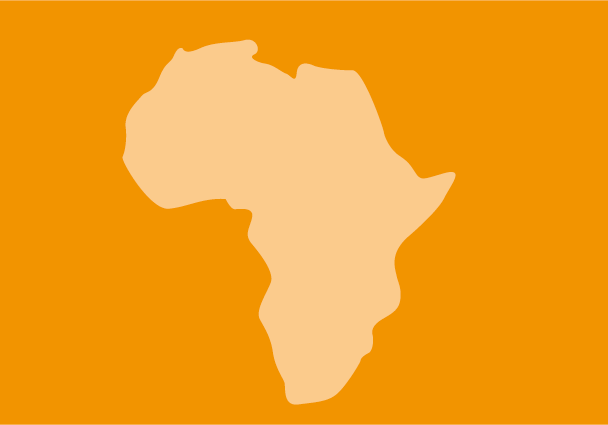
Oct 31, 2012 | News
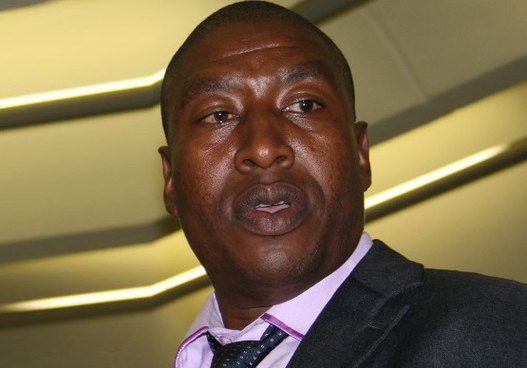 The ICJ welcomed the judgment issued on 24 October 2012 by the Zimbabwe High Court in favour of Farai Maguwu, a human rights defender and director of the Centre for Research and Development.
The ICJ welcomed the judgment issued on 24 October 2012 by the Zimbabwe High Court in favour of Farai Maguwu, a human rights defender and director of the Centre for Research and Development.
In September 2011, members of the Central Intelligence Organisation (CIO) confiscated a number of Farai Maguwu’s possessions, including cash, a laptop computer, a camera, and bank cards, at the Harare International Airport while he was about to depart for a human rights conference in Ireland.
The ICJ is concerned that the seizure of property may have been undertaken as an attack on Farai Maguwu for his legitimate human rights work.
According to media reports, Hon. Justice Mathonsi ordered, “the seizure of the applicant’s property by the State agents…be and is hereby declared wrongful, unlawful and unjustified”.
Since the confiscation of his property by the CIO over a year ago, no charges had been brought against Mr Maguwu, neither was his property returned.
Justice Mathonsi affirmed that deprivation of property must only be done in accordance with due process of law. Farai Maguwu had not been advised of the legal basis or reasons for the seizure of his property.
“We congratulate the judiciary of Zimbabwe for this judgment which adheres to the principles of the rule of law, justice and respect for human rights. Furthermore, it is a reminder to State agents that in carrying out their duties they ought to do so within the parameters of the rule of law,” commented Martin Masiga, Deputy Director of the ICJ Africa Regional Programme.
The ICJ calls on the Zimbabwean judiciary to continue to uphold the rule of law and fulfil their responsibility in protecting human rights in Zimbabwe.
Contact:
Martin Masiga, Deputy Director, ICJ Africa Regional Programme, t: +27 11 02482
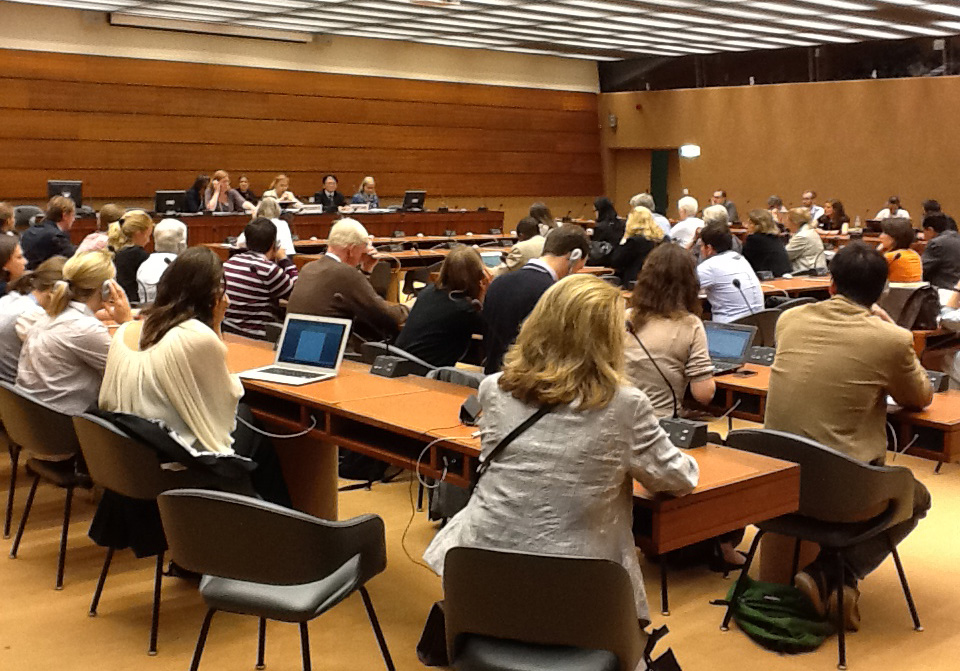
Sep 12, 2012 | Events
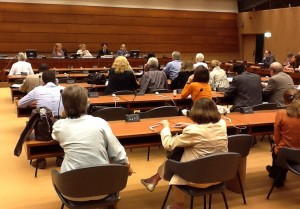 The ICJ, Impunity Watch and other NGOs sponsored today a parallel event to the UN Human Rights Council on the occasion of the presentation of the first report to the Council by the new Special Rapporteur on the promotion of truth, justice, reparation and guarantees of non-recurrence.
The ICJ, Impunity Watch and other NGOs sponsored today a parallel event to the UN Human Rights Council on the occasion of the presentation of the first report to the Council by the new Special Rapporteur on the promotion of truth, justice, reparation and guarantees of non-recurrence.
The parallel event was held 2012 in the margins of the UN Human Rights Council’s 21st regular session. Panelists included the Special Rapporteur, Pablo de Greiff, victims’ representatives from Guatemala and Burundi, Bejamin Mateo Jeronimo and Aloys Batungwanayo, and the Executive Director of Impunity Watch, Marlies Stappers. The event was moderated by Alex Conte of the ICJ.
HRC21-Impunity-ParallelEvent-2012 (download invitation flyer, in PDF)
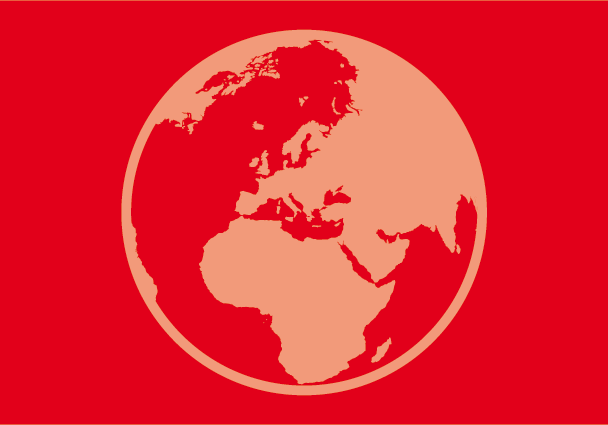
Sep 11, 2012 | News

To be more visible to a wider audience and ensure that its wealth of legal resources and advocacy work are made accessible, the ICJ undertook to modernise its visual identity and main communications tool in 2012; a year that coincides with the organization’s 60th anniversary.
The new ICJ logo and visual identity has been developed by the well-known Swiss artist and designer Roger Pfund, who has shown his commitment to the protection of human rights through past collaborations with organisations such as Amnesty International (Switzerland), Human Rights Watch and the Geneva Call.
The new brand retains the flame and globe found within the ICJ’s previous logos, but gives them a more modern style. The new logo also reinforces the significance of the ICJ acronym.
The new ICJ website has been developed by HURIDOCS – an international NGO that supports human rights organizations by helping them efficiently utilise information technologies and documentation methods. The Atelier Roger Pfund worked on the design of the new website.
One of the main features of the new website is its sophisticated search tool, which allows visitors to easily filter and navigate through the vast collection of ICJ publications, submissions and other expert documents.
“The ICJ is extremely privileged to have worked with Roger Pfund and HURIDOCS. The result has fully met our expectations,” said Wilder Tayler, ICJ’s Secretary General. “Both partners have invested a lot of time and expertise in this collaboration and have carried out a significant proportion on a pro bono basis, for which we are very grateful.”
ICJ’s new visual identity will be progressively implemented until the organization’s 14th World Congress in December.
Contact: Olivier van Bogaert, ICJ Media & Communications;
T +41 22 979 3808, M + 41 79 269 01 93
E olivier.vanbogaert(at)icj.com
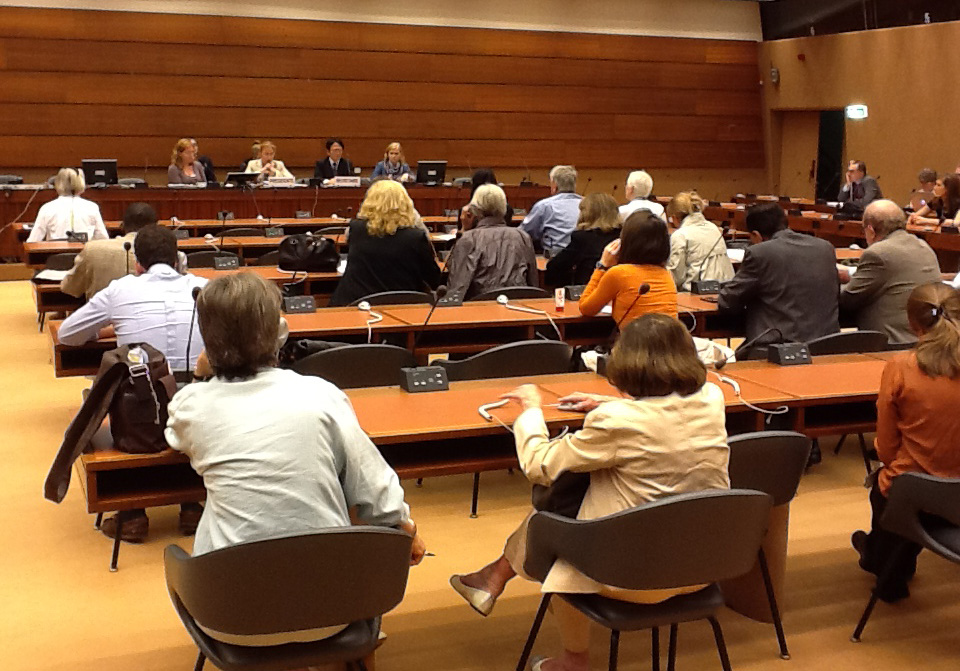
Sep 11, 2012 | Events
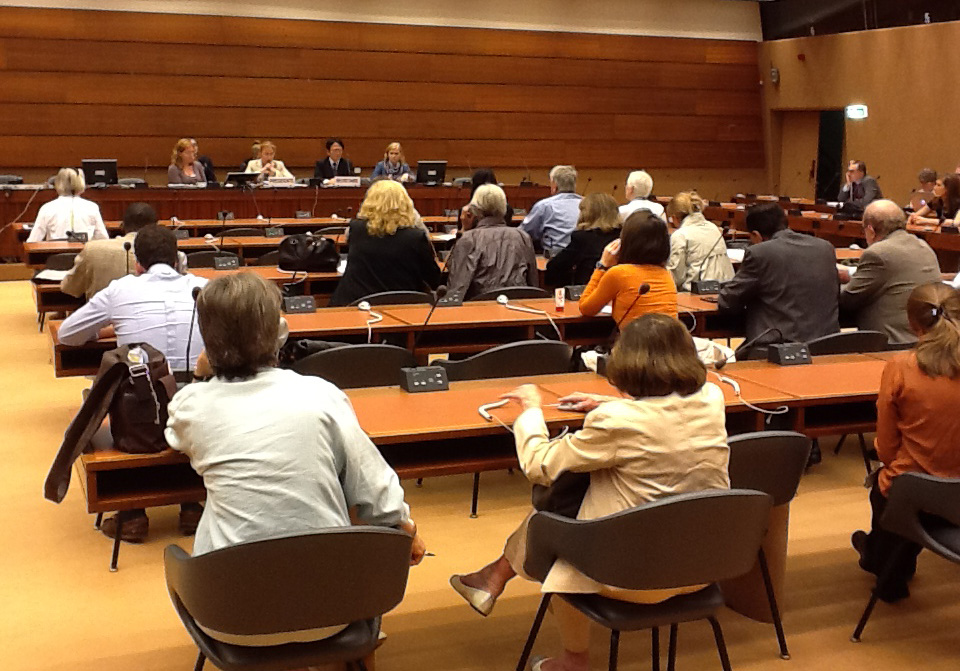 During the 21st session of the UN Human Rights Council (10-28 September 2012), the ICJ and the Geneva Academy of International Humanitarian Law and Human Rights will convene a high-level discussion on ensuring human dignity during detention.
During the 21st session of the UN Human Rights Council (10-28 September 2012), the ICJ and the Geneva Academy of International Humanitarian Law and Human Rights will convene a high-level discussion on ensuring human dignity during detention.
The parallel event will be held in the Palais des Nations in meeting room XXI on Tuesday 25 September 2012 from 14h to 16h.
The event will discuss the need and options for an international instrument clarifying and enhancing the human right legal framework applicable to persons in detention. Panelists include Professor Manfred Nowak, former Special Rapporteur on torture and former member of the Working Group on enforced disappearances; Judge Theodor Meron, Judge on the Appeals Chambers of the ICTY and ICTR; Professor Shaheen Sardar Ali, Vice-Chair of the Working Group on arbitrary detention; and Ian Seiderman, Law and Policy Director of the ICJ. The event will be moderated by Hina Jilani, member of the Panel on Human Dignity and Advocate of the Supreme Court of Pakistan.
The event is open to all persons with access to the Palais des Nations.
HRC21-DetentionEvent-Flyer-2012 (download flyer)
HRC21-DetentionEvent-ConceptNote&BackgroundPaper-2012 (download concept note and background paper)
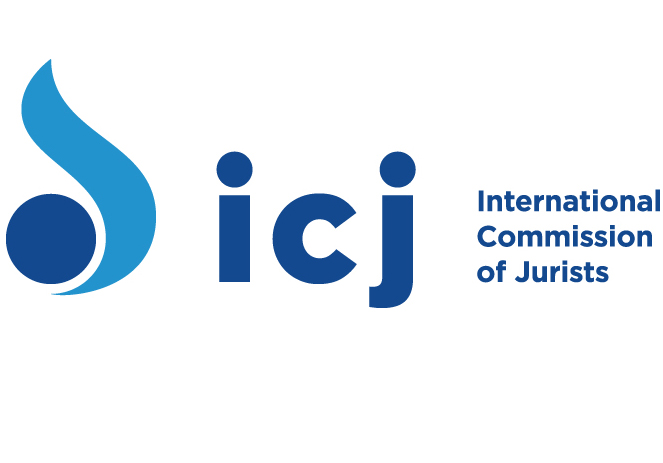
Aug 17, 2012 | News
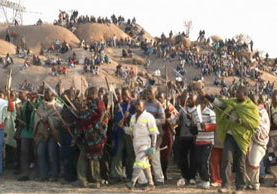 The ICJ has observed with deep concern the tragic and violent events that took place at the Lonmin mines since 10 august 2012, when miners embarked on a collective action for an increase in wages.The lives that have been lost during this short period bring to the fore various issues concerning the realization of economic and social rights, including the sensitive issue of business and human rights. Poverty, lack of employment and many other socio-economic issues sometimes lead to frustrations, which in turn manifest themselves in violence.
The ICJ has observed with deep concern the tragic and violent events that took place at the Lonmin mines since 10 august 2012, when miners embarked on a collective action for an increase in wages.The lives that have been lost during this short period bring to the fore various issues concerning the realization of economic and social rights, including the sensitive issue of business and human rights. Poverty, lack of employment and many other socio-economic issues sometimes lead to frustrations, which in turn manifest themselves in violence.

 The ICJ welcomed the judgment issued on 24 October 2012 by the Zimbabwe High Court in favour of Farai Maguwu, a human rights defender and director of the Centre for Research and Development.
The ICJ welcomed the judgment issued on 24 October 2012 by the Zimbabwe High Court in favour of Farai Maguwu, a human rights defender and director of the Centre for Research and Development.











